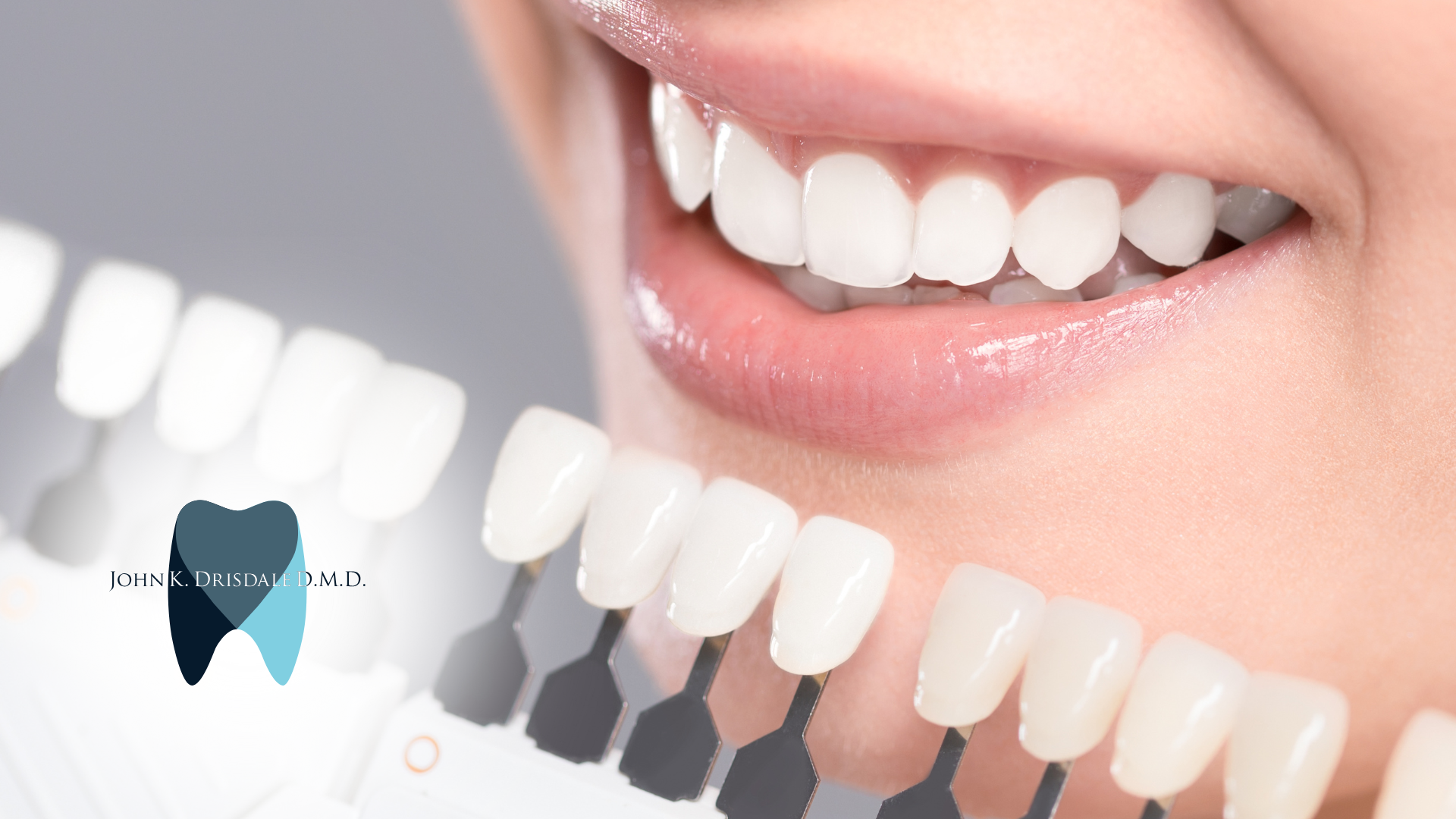Why Does My Crown Hurt When I Put Pressure On?
Common Causes of Crown Pain
Tooth Decay Under the Crown
One common reason for crown pain is tooth decay forming under the crown. This can happen if bacteria get trapped between the crown and the natural tooth. Decay can lead to sensitivity and pain, especially when pressure is applied. Regular dental check-ups can help catch this issue early.
Gum Recession
Gum recession is another cause of crown pain. When gums pull back from the teeth, it can expose the roots and make the area around the crown sensitive. This can cause discomfort when biting or chewing. Good oral hygiene and regular visits to John K Drisdale DMD can help prevent gum recession.
Improper Fit of the Crown
If a crown doesn't fit right, it can cause pain. An improper fit can lead to pressure points and discomfort. A poorly fitted crown can also cause issues with your bite, leading to pain when chewing. If you suspect your crown doesn't fit well, it's important to see your dentist for an adjustment.
Symptoms Associated with Crown Pain
Sensitivity to Temperature
One common symptom of crown pain is sensitivity to temperature. If you feel a sharp pain when eating or drinking something hot or cold, it might be due to issues with your dental crown. This sensitivity can be a sign that the crown is not fitting properly or that there is decay underneath.
Pain When Biting or Chewing
Crown pain pressure can also occur when you bite or chew. If your crown hurts when biting, it could be due to an improper fit or an issue with the underlying tooth. This type of pain is often sharp and can make eating uncomfortable.
Swelling Around the Crown
Swelling or inflammation around the crown is another symptom to watch for. This can indicate an infection or gum recession. If you notice swelling, it's important to see your dentist as soon as possible to prevent further complications.
If you experience any of these symptoms, it's crucial to consult with a dental professional like John K Drisdale DMD to diagnose and treat the issue effectively.
Diagnosing the Source of Crown Pain
Dental X-Rays
Dental X-rays are often the first step in diagnosing why your crown hurts when you put pressure on it. X-rays can reveal hidden issues such as tooth decay under the crown or problems with the tooth's root. This imaging helps the dentist see areas that are not visible during a regular examination.
Physical Examination by a Dentist
A thorough physical examination by a dentist is crucial for identifying the source of crown pain. The dentist will check for signs of gum recession, improper fit of the crown, and any visible decay. They may also apply pressure to different areas to pinpoint the exact location of the pain.
Patient History and Symptoms
Understanding your patient history and symptoms is essential for an accurate diagnosis. The dentist will ask about your dental history, any recent procedures, and specific symptoms like sensitivity to temperature, pain when biting or chewing, and swelling around the crown. This information helps in forming a complete picture of the issue.
If you're experiencing crown pain, it's important to consult with a professional like John K Drisdale DMD to get a proper diagnosis and treatment plan.
Treatment Options for Crown Pain
Adjusting the Crown
If your crown hurts when biting, it might be due to an improper fit. A dentist can adjust the crown to ensure it fits correctly and relieves the pressure causing the pain. This adjustment can often be done quickly and may provide immediate relief.
Replacing the Crown
In some cases, the crown itself may be the problem. If adjusting the crown doesn't help, your dentist might suggest replacing it. A new crown can be made to fit better and eliminate the pain. This process involves removing the old crown, preparing the tooth, and placing a new one.
Root Canal Therapy
If the pain is due to an infection or damage inside the tooth, root canal therapy might be necessary. This treatment involves removing the infected or damaged tissue from inside the tooth and sealing it to prevent further issues. Root canal therapy can save the tooth and eliminate the pain associated with crown sensitivity.
Preventing Crown Pain
Maintaining Oral Hygiene
Good oral hygiene is key to preventing crown pain. Brush your teeth twice a day and floss daily to remove plaque and food particles. Using an antibacterial mouthwash can also help keep your mouth clean.
Regular Dental Check-Ups
Seeing your dentist regularly can help catch potential issues before they become serious. Schedule check-ups every six months. During these visits, your dentist can inspect your crown and the surrounding teeth for any signs of trouble.
Avoiding Hard Foods
Chewing on hard foods like ice, nuts, or hard candies can damage your crown. Stick to softer foods to avoid putting too much pressure on your crown. If you grind your teeth at night, consider using a mouthguard to protect your crown and other teeth.
Taking care of your crown is essential for long-term dental health. Simple habits like brushing, flossing, and regular dental visits can make a big difference.
Understanding the Dental Crown Procedure
Restorative Dentistry encompasses various treatments aimed at restoring the integrity and function of your teeth, with the dental crown procedure being a prime example. The journey to getting a dental crown begins with a comprehensive dental examination to assess whether a crown is suitable based on your specific dental needs. During the tooth preparation stage, your dentist reshapes the tooth to ensure the crown fits perfectly. Impressions of the reshaped tooth are then taken to create a model for the crown. A temporary crown is fitted to protect the tooth while the permanent crown is being fabricated, which can take about two weeks. In the final visit, the temporary crown is replaced with the permanent one, ensuring proper fit and color match before it is securely cemented into place.
When to See a Dentist for Crown Pain
Persistent Pain
If you experience persistent pain in your crown, it's time to see a dentist. Pain that doesn't go away could mean there's a serious issue, like an infection or a problem with the fit of the crown. Don't ignore ongoing discomfort.
Signs of Infection
Look out for signs of infection around your crown. These can include:
- Red, swollen gums
- Pus or discharge
- Bad taste in your mouth
- Fever
If you notice any of these symptoms, contact your dentist right away. Infections can spread and cause more serious health problems.
Difficulty Eating or Speaking
When your crown hurts when biting or you have trouble eating or speaking, it's a clear sign that something is wrong. This could be due to the crown being too high or not fitting properly. A dentist can adjust or replace the crown to fix the issue.
It's important to address crown pain early to prevent further complications. Regular check-ups with John K Drisdale DMD can help keep your crowns in good shape and catch any problems early.
Impact of Bruxism on Crown Pain
Understanding Bruxism
Bruxism is the medical term for grinding or clenching your teeth, often unconsciously. This habit can occur during the day or night and can lead to various dental issues, including crown pain. Bruxism puts excessive pressure on your teeth and crowns, which can cause discomfort and damage over time.
How Grinding Affects Crowns
When you grind your teeth, the force exerted can cause your dental crowns to become loose or even crack. This can lead to crown sensitivity and pain when biting or chewing. The constant pressure from grinding can also wear down the material of the crown, making it less effective and more prone to issues.
Treatment for Bruxism
Managing bruxism is crucial to alleviate crown pain. Here are some common treatment options:
- Mouthguards: Wearing a custom-fitted mouthguard at night can help protect your teeth and crowns from grinding damage.
- Stress Management: Since stress is a common cause of bruxism, techniques like meditation, exercise, and counseling can be beneficial.
- Dental Adjustments: Your dentist may adjust the fit of your crown or recommend a different type of crown material to better withstand the pressure from grinding.
If you experience crown pain due to bruxism, it's essential to consult with a dental professional like John K Drisdale DMD. Early intervention can prevent further damage and alleviate discomfort.
Role of Allergies in Crown Pain
Allergic Reactions to Crown Materials
Sometimes, the materials used in dental crowns can cause allergic reactions. This can lead to crown pain, especially when pressure is applied. Common materials that might cause allergies include metals like nickel or certain types of porcelain. If you notice discomfort or pain after getting a crown, it could be due to an allergic reaction.
Identifying Allergies
To determine if an allergy is causing your crown pain, your dentist may recommend allergy testing. This can help identify specific materials that trigger your symptoms. It's important to share your medical history and any known allergies with your dentist.
Alternative Materials for Crowns
If you have allergies to certain crown materials, there are alternatives available. Dentists can use hypoallergenic materials such as zirconia or gold. These materials are less likely to cause allergic reactions and can help reduce crown pain. Discussing these options with your dentist can lead to a more comfortable dental experience.
If you experience crown pain, especially when biting or applying pressure, consider the possibility of an allergic reaction. Consulting with your dentist can help identify the cause and find a suitable solution.
Post-Procedure Care for Crowns
Immediate Aftercare Tips
After getting a dental crown, it's important to follow some immediate aftercare tips to ensure proper healing and avoid crown pain pressure. Avoid eating or drinking anything for at least an hour after the procedure to allow the cement to set. Stick to soft foods for the first 24 hours and avoid chewing on the side of your mouth where the crown is placed.
- Avoid hard or sticky foods
- Rinse your mouth with warm salt water to reduce swelling
- Take over-the-counter pain relievers if you experience discomfort
It's normal to feel some sensitivity or discomfort after getting a crown. However, if the pain persists, contact John K Drisdale DMD for further evaluation.
Long-Term Maintenance
To keep your crown in good condition and prevent crown sensitivity, maintain good oral hygiene. Brush your teeth twice a day and floss daily to remove plaque buildup around the crown. Use a fluoride mouthwash to strengthen your teeth and prevent decay.
- Schedule regular dental check-ups
- Avoid grinding your teeth
- Wear a mouthguard if you have bruxism
Signs of Complications
Be aware of signs that may indicate complications with your crown. If you experience persistent pain, swelling, or if the crown feels loose, it may need adjustment or replacement. Contact John K Drisdale DMD immediately if you notice any of these symptoms.
- Persistent pain or sensitivity
- Swelling or redness around the crown
- Difficulty biting or chewing
Early detection of issues can prevent more serious problems and ensure the longevity of your crown. Regular visits to your dentist are crucial for maintaining your oral health.
Understanding Different Types of Dental Crowns
Dental Crown Materials: Selection Guide
When it comes to choosing the right dental crown, the material plays a pivotal role in balancing aesthetics, durability, and functionality. Porcelain crowns are favored for front teeth due to their natural look, matching the translucency of real teeth, but they may not be as durable as other options. Metal crowns, made from gold or other alloys, offer remarkable durability and require less removal of the original tooth structure, making them ideal for molars where the chewing force is greatest. Porcelain-fused-to-metal crowns combine the strength of metal with the aesthetic appeal of porcelain, suitable for both front and back teeth. For those seeking the best of durability and aesthetics, zirconia crowns stand out as a strong, biocompatible option that closely mimics natural dental aesthetics.
Metal Crowns
Metal crowns are known for their durability and strength. They are often made from gold, platinum, or base metal alloys. These crowns are less likely to chip or break, making them a long-lasting option. However, their metallic color can be a drawback for some people, especially when used on front teeth.
Porcelain Crowns
Porcelain crowns are popular because they look like natural teeth. They are made from ceramic materials and can be color-matched to your existing teeth. While they are aesthetically pleasing, they may not be as strong as metal crowns and can be more prone to chipping or cracking.
Composite Crowns
Composite crowns are made from a mixture of materials, including resin. They are less expensive than metal or porcelain crowns and can be color-matched to your teeth. However, they may not last as long and can wear down over time. Composite crowns are often used as a temporary solution while waiting for a more permanent crown.
Important: Choosing the right type of dental crown depends on various factors, including the location of the tooth, your budget, and your aesthetic preferences. Consult with your dentist to determine the best option for you.
- Metal Crowns: Durable and strong, but metallic in color.
- Porcelain Crowns: Natural-looking but can be prone to chipping.
- Composite Crowns: Affordable and color-matched, but may not last as long.
John K Drisdale DMD can help you understand the pros and cons of each type of dental crown to make an informed decision.
Psychological Factors Contributing to Crown Pain
Stress and Dental Pain
Stress can have a significant impact on dental health. When you're stressed, you might grind your teeth or clench your jaw, which can lead to crown pain. Stress can also make you more sensitive to pain, making any discomfort from your crown feel worse.
The Role of Anxiety
Anxiety can amplify the perception of pain. If you're anxious about dental visits or procedures, you might feel more pain from your crown than you would otherwise. This heightened sensitivity can make it seem like your crown hurts more than it actually does.
Managing Psychological Factors
Managing stress and anxiety can help reduce crown pain. Here are some tips:
- Practice relaxation techniques like deep breathing or meditation.
- Talk to your dentist about your anxiety; they can offer solutions to make you more comfortable.
- Consider therapy or counseling if stress and anxiety are affecting your daily life.
Taking care of your mental health is just as important as taking care of your dental health. By managing stress and anxiety, you can help reduce the pain and discomfort associated with your dental crown.
Managing Crown Pain and Sensitivity
If you experience sensitivity or pain associated with your dental crown, initial home remedies like rinsing with warm salt water can provide temporary relief. However, persistent pain or signs of infection, such as swelling or redness around the crown, should prompt a visit to the dentist. The dentist may need to adjust the crown’s fit or address underlying issues such as decay or root infection to resolve the discomfort. Proactive management and timely consultation with your dentist are key to resolving crown-related issues effectively.
Frequently Asked Questions About Dental Crowns
Why does my crown hurt when I push on it?
It's not uncommon to experience discomfort when you apply pressure to a newly placed crown. This could be due to the adjustment period your tooth undergoes after receiving the crown or inflammation of the tooth's pulp. However, if the pain persists, it might indicate that the crown is not properly fitted or there is an underlying issue with the tooth that needs further examination by your dentist.
I feel pressure under my crown. What does this mean?
Feeling pressure under your crown can occur for several reasons, such as changes in your bite alignment or the development of decay under the crown. It’s important to consult your dentist to ensure that the crown fits correctly and that there are no complications such as infection or decay causing the pressure.
Why does my crown hurt?
Pain under a crown can arise from a few sources: the adjustment to a new dental appliance, infection, improper fit, or even decay reaching the nerve of the tooth. If you're experiencing ongoing or severe pain, it's crucial to visit your dentist to determine the root cause and prevent further dental issues.
My crown hurts when chewing. Is this normal?
While some initial sensitivity or discomfort when chewing with a new crown is normal, persistent or sharp pain is not. This type of pain may indicate that the crown is too high and affecting your bite, or there might be a problem with the way the crown was placed over the tooth. Your dentist can adjust the fit of your crown to alleviate this discomfort.
Why does my crown hurt when I bite down?
If your crown hurts when you bite down, this could be a sign that the crown is misaligned, which affects how your teeth meet. An improperly fitted crown can exert extra pressure on a tooth, leading to pain when biting. A visit to your dentist is necessary to adjust the crown’s alignment and ensure that your bite is even.
Conclusion
In summary, if your dental crown hurts when you apply pressure, it could be due to several reasons like an ill-fitting crown, tooth decay, or gum disease. It's important to visit your dentist to find out the exact cause and get the right treatment. Ignoring the pain might lead to more serious problems later on. So, don't wait too long to seek help. Taking care of your dental health is key to keeping your smile bright and pain-free.




